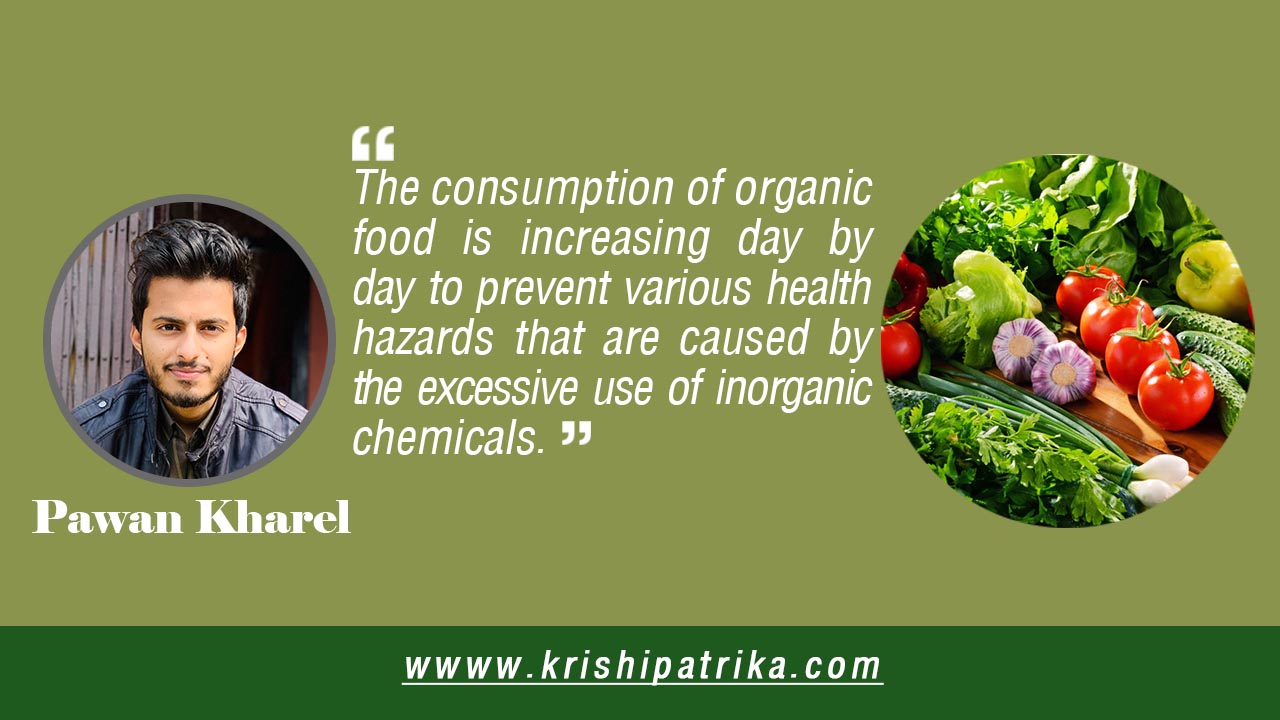
As all we know, Nepal is an agricultural country about 60% of total population are engaged in agriculture in Nepal. The country’s economy is also related to the agriculture. Agriculture is co-related with both crops and livestock. Combination of both crops and livestock is seen in Nepal for subsistence type of farming. Although these all are, we are using both organic and inorganic farming practices for the cultivation of crops. Nowaday’s organic farming practices were come into practice as it helps in the increasing crops productivity, does not harm the environment quality and human health, improve soil condition which are far better than the inorganic farming practices.
Organic farming /agriculture is a holistic production management system which enhances the agro ecosystem health, biological cycles, soil activity, avoid use of toxic chemicals, uses traditional practices, working in harmony with nature. It is one of the ways of sustainable agriculture with various techniques i.e. crop rotation, intercropping, mulching, ploughing, crop and livestock interaction.
Organic nutrient management is also one of the indigenous traditional organic farming system. It follows the use of bio fertilizers, FYM (farm yard manure), green manure, in situ manuring by keeping animal shed, mulching, N fixing plants, crop rotation, trapping flood water, thrash burning, use of forest soil etc. Some of the practices followed are as:
Crop rotation is the practice of growing a series of different types of crops in the same area across a sequence of growing seasons. It reduces the occurrence of insect, pest and weeds.
Cover crop is a crop that is grown primarily for the benefit of the soil rather than the crop yield. They are commonly used to reduce weeds, manage soil erosion, improve soil fertility and quality, control diseases and pest and improve biodiversity.
Mulching is a process of covering, as of straw, compost, or plastic sheeting, spread on the ground around plants to prevent excessive evaporation or erosion, enrich the soil, inhibit weed growth, etc.
Farmyard Manure (FYM) is primarily made from cow dung, cow urine, waste grass, and other dairy waste. FYM is nutrient-rich. A small portion of N is available directly to the plants, while a greater portion is made available when FYM decomposes.
Intercropping is the process of cultivating two or more crops simultaneously on the same field. The most common goal of intercropping is to produce a greater yield on a small piece of land by using local resources available.
Bio fertilizers are the substance that contains living microorganisms. Bio fertilizers increase the nutrients of host plants when applied to their seeds, plant surface or soil by colonizing the rhizosphere of the plant. Bio fertilizers are more cost-effective as compared to chemical fertilizers. Bio fertilizers such as Rhizobium, Azotobacter, Azospirilium and blue green algae (BGA) have been in use a long time. Rhizobium inoculant is used for leguminous crops. Azotobacter can be used with crops like wheat, maize, mustard, cotton, potato and other vegetable crops.
In today’s scenario the consumption of organic food is increasing day by day to prevent various health hazards that are caused by the excessive use of inorganic chemicals. Awareness level have been increased within the consumers level about the harmful effects of the use of chemicals fertilizers in the field and increased the need of organic farming. The use of chemicals fertilizers and pesticides causes the health hazard that causes skin diseases, birth defects, liver, lungs and kidney problems, hormonal imbalance/disruption, reproduction abnormality. All of the above problems can be minimized by using organic food produced through by organic nutrient management.
Hence, the health benefit can be improved by using organic farming through the organic nutrient management. It also provides the benefit for environment protection, conservation of non-renewable resources, improve food quality and ensure food security. So, the roles of government, private sectors, individual farmers and consumers are equally important for the improvement of the environment, nature, human health, healthy food and healthy food. Thus, organic nutrient management is must for the production of the healthy food and healthy consumption of food in organic farming.









